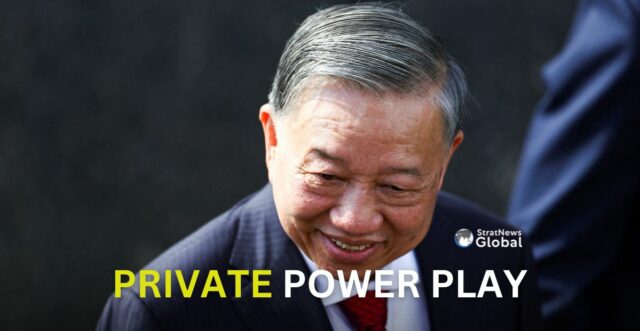Two days after Vietnam’s top leader urged private firms to take a greater role in national infrastructure, major conglomerate Vingroup announced plans to invest $70 billion in developing a high-speed railway and manufacturing the trains for it.
The appeal from Communist Party chief To Lam was part of a broader push outlined in Resolution 68, a development roadmap unveiled in May that analysts have dubbed “Doi Moi 2.0”, referencing the 1980s reforms that transformed Vietnam’s economy.
The high-speed railway, Vietnam’s most expensive infrastructure project, has emerged as a test case — and a source of financial stability concerns flagged in rare instances of explicit criticism by the central bank and finance ministry in documents seen by Reuters.
Party Offers Preferential Policies To Private Firms
The Communist-run country aims to make the private sector the key “driving force” of the economy under the state’s “leading role”, according to a party document released in October.
To achieve that, it wants more private Vietnamese companies to have a global footprint and is willing to favour their involvement in strategic projects with incentives and “preferential policies”, such as “limited bidding or direct contracting”, according to Resolution 68.
Investors Remain Cautious
Hong Sun, honorary chairman of the Korean Business Association in Vietnam, says the country wants “chip-to-ship” corporations, citing South Korean chaebols as models.
Overseas investors have been cautious. Investment pledges fell 5% in the five months after Resolution 68 was issued compared to the same period last year, and foreign cash has continued to exit the stock market despite a rally, with foreign ownership of Vietnamese shares down to around 15% of the total from 16% in May.
Many investors express support for the party’s declared intention to boost the private sector, but others worry about transparency and favouritism.
(With inputs from Reuters)





